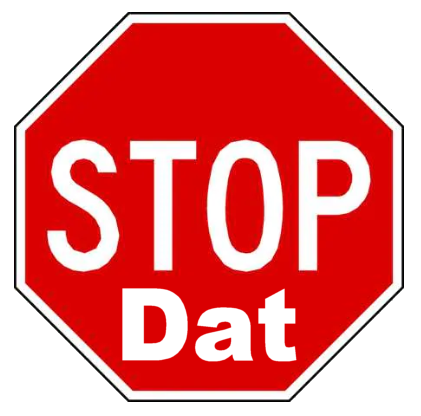Online piracy has grown in importance as a problem in the digital sphere in recent years. Internet piracy is the illegal sharing, distribution, and usage of copyrighted content on the internet, including music, movies, software, and eBooks.
For those who own the rights to the information they create and distribute, the ubiquity of internet piracy is a major source of worry since it compromises their capacity to make money from their creations and defend their intellectual property rights. Online theft may also hurt respectable companies, result in the loss of income, and cause jobs.
As a result, this article’s goals are to provide a general overview of internet piracy, describe how it operates, and propose solutions to stop it. This article’s goal is to inform readers about the risks and repercussions of online piracy while also motivating them to take the necessary precautions to safeguard their digital material and show their support for content producers.

What is Online Piracy?
The act of sharing or distributing copyrighted content, such as music, movies, software, and eBooks, illegally via the internet is known as online piracy. It entails sharing items that are protected by intellectual property without the owner’s consent. Internet material theft may take many different forms, such as downloading, sharing, streaming, and copying.
Types of Online Piracy:
Online piracy may take many different forms, including:
- Copyright infringement: When someone uses or reproduces content that is protected by a copyright without the owner’s consent, it is considered a copyright violation. This includes downloading and sharing illegally copied versions of software, films, or music.
- Software piracy: is the usage or distribution of software without authorization. This involves purchasing counterfeit copies of software, utilising unauthorised copies, and downloading and distributing pirated software.
- Music piracy: Piracy of music refers to the unlicensed sharing or downloading of music. This may involve purchasing counterfeit CDs or MP3s and downloading music via file-sharing websites or peer-to-peer networks.
- Movie piracy: The unlawful sharing or downloading of movies is known as movie piracy. This may involve purchasing counterfeit DVDs or Blu-rays and downloading movies from file-sharing websites or peer-to-peer networks.
- eBook piracy: Unauthorized downloading or sharing of electronic books is known as eBook piracy. This may include purchasing counterfeit eBooks, downloading eBooks through file-sharing websites, and exchanging eBooks over peer-to-peer networks.
Examples of Online Piracy:
Examples of widespread internet piracy include:
- Obtaining music with a copyright via a file-sharing service
- using a peer-to-peer network to distribute copyrighted movies
- using an internet marketplace to sell fake software
- using pirated software for commercial reasons
- Obtaining an eBook from a website without the author’s or publisher’s consent
These instances highlight the many forms of cyber piracy as well as the devastation it can do to rights holders and content providers.
How Online Piracy Works
Many techniques, such as torrenting, direct downloads, and streaming, may lead to online piracy.
- Torrenting: Using a peer-to-peer network, torrenting entails downloading and distributing files. Via a software known as a torrent client, users may download and upload data. This application splits the files into smaller chunks and disperses them throughout a network of users. These fragments are stitched back together into the original file on the user’s computer when they are downloaded and uploaded by users.
- Direct download: A file is downloaded directly from a server or website when using a direct download method. By clicking on a link or typing a URL into their web browser, users may view the file. Since direct downloads sometimes require downloading files from unreliable sources, which may include malware or viruses, they may be unsafe.
- Streaming: Using the internet to see or hear material in real-time without downloading it to the user’s device is known as streaming. This includes downloading or using an app to stream movies, music, or TV programmes. Since streaming sometimes entails obtaining information from unauthorised or unlawful sources, there is a danger of legal repercussions as well as the possibility of malware or viruses.
Risks of Online Piracy:
Internet theft may result in significant repercussions, such as identity theft, spyware, and legal repercussions.
- Legal consequences: Internet theft is prohibited and may result in both civil and criminal fines. Those who indulge in internet piracy may face fines, litigation, and even criminal penalties as a consequence of copyright owners’ legal action.
- Malware and viruses: Malware and viruses are often included in pirated material, which may damage users’ devices and compromise their personal data. Passwords, bank details, and other sensitive data may all be stolen via malware.
- Identity theft: Identity theft may potentially result from pirated material. Users often have to provide personal information, including email addresses or credit card numbers, while downloading illegal material. This data may be used by hackers to conduct fraud and steal the identity of people.
In conclusion, internet piracy is a major problem that may have far-reaching effects on consumers, rights holders, and content providers. People may take precautions to protect themselves and help legal content providers by learning how internet piracy operates and the hazards associated with it.

How to Prevent Online Piracy from Happening
Using a mix of awareness campaigns, legal action, and other measures, online piracy may be stopped.
- Education: Preventing internet piracy requires a strong emphasis on education. People may learn the value of respecting intellectual property rights by learning about copyright laws and the damage that results from piracy. Curriculums for schools, public awareness campaigns, and other educational endeavours may accomplish this.
- Legal action: People and organisations that participate in cyber piracy may face legal repercussions. Moreover, access to pirate websites may be restricted and sanctions assessed. To find and bring criminal charges against those who participate in internet piracy, governments and law enforcement organisations may collaborate with content producers and rights holders. As well it will best to invest in an anti piracy service.
- Alternative solutions: Online piracy may be halted by offering reasonable, legal alternatives. These may include digital rights management (DRM) and watermarking technologies, as well as subscription-based services for music, movies, and TV programmes. These tools may aid in preventing unlawful copying and dissemination of material.
In conclusion, combating internet piracy requires a multifaceted strategy that combines different approaches, legal action, and education. Collaboration among content producers, rights holders, governing bodies, and the general public may assist safeguard intellectual property rights and advance a thriving online ecosystem.
Final thoughts
Internet theft is a severe problem that may have negative effects on users, rights holders, and content providers. It includes the illicit use of copyrighted material to reproduce and distribute it, which carries risk of legal repercussions, malware and viruses, and identity theft. Nonetheless, internet piracy may be avoided by combining legal action, other measures, and education.
This article has covered the definition of internet piracy, its mechanisms, and the dangers it poses. We have also looked at other approaches, including as education, taking legal action, and finding workarounds, to stop internet piracy.
A united effort by content producers, rights holders, governments, and people is needed to solve the complicated problem of online piracy. Although it may seem alluring to use online piracy to get access to information that is available for free, it is crucial to keep in mind that doing so is detrimental to content providers and compromises the integrity of the online ecosystem. We can aid in the promotion of a wholesome and long-lasting online environment by aiding lawful content producers and taking action to stop piracy.
We urge everyone to take a stance against internet piracy by assisting lawful content producers and avoiding illegal copies of protected works. We can contribute to the protection of intellectual property rights and promote a just and equitable online environment for everyone by educating ourselves and others about the damage that results from piracy and by taking steps to avoid it.






1 Comment